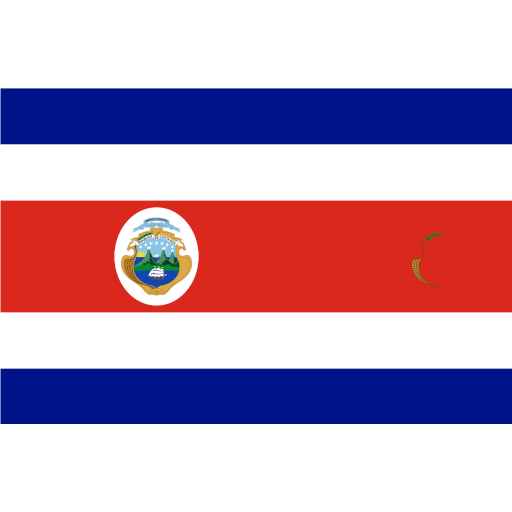On October 18th, the Chamber of Representatives presented the progress of the Labor Reform Bill, which the Senate of the Republic will evaluate and approve.
Through this Bill, the Colombian Government seeks to modify the Substantive Labor Code, Law 50 of 1990, Law 789 of 2002, and other labor regulations. Below are the most relevant to consider:
(i) Article 6 Fixed-Term Employment Contracts: A fixed-term employment contract may be entered into for no more than four (4) years and must be in writing.
(ii) Article 7 Disciplinary Process: A procedure that promotes due process will be applied, and in any case, the employee will have the right to support his defense in a time of not less than 5 days.
(iii) Article 10 Reinforced Labor Stability: The following circumstances are considered:
a. Pregnant women or persons up to 6 months after childbirth, and it is extended to adoptive persons, as well as to the spouse, partner, or permanent companion if the woman is financially dependent, is a beneficiary of social security, and the employer is aware of the situation.
b. Pre-retirees who are on the Average Premium scheme and have three or fewer years left to meet the number of contribution weeks and the minimum age required to access the old-age pension; for Private Pension Funds, persons who are within three years or less of acquiring their old-age pension
c. People with a physical, mental, intellectual, or sensory deficiency, a limitation or disability that prevents the development of their functions, and if the employer is aware of this situation.
(iv) Article 13 Day and Night Work: Daytime work will be performed between 6:00 a.m. and 7:00 p.m., and nighttime work will be considered between 7:00 p.m. and 6:00 a.m.
(v) Article 18 Paid Leave; paid leave will be granted for the following cases:
a. The exercise of the right to vote.
b Performance of temporary official positions.
c. Proven domestic calamity extended to the third degree of consanguinity, second degree of affinity, or first degree of civil relationship, including foster families.
d. Performance of union commissions.
e. Attendance at scheduled or urgent medical appointments, including menstrual cycles.
f. Attendance at school obligations.
g. Attendance at judicial matters.
h. An agreement of one day of paid rest every six months for the worker who certifies using a bicycle as transportation to and from their workplace.
i. Companies with over 100 employees must hire at least one disabled worker or person assigned to a disability pension.
(vi) Article 22 Apprenticeship or learning Contract; it will be considered a unique and fixed-term employment contract for apprentices in the Teaching Stage 60% of the Current Legal Minimum Wage – CLMW- as its acronym in Spanish SMMLV will be paid. In Practical Stage 1 (one) CLMW will be paid, and the Productive Stage will be developed for 12 months.
(vii) Article 26 Registration of Information on Digital Delivery Platforms: An identity recognition mechanism must be created to identify the type of worker who may be dependent or subordinate, independent or self-employed.
(viii) Article 27 Social Security and occupational risks in digital delivery platforms; if the digital worker is in the dependent or subordinate worker modality, the digital platform company will be responsible for the entire social security payment. The independent or self-employed worker will be responsible for 40% of the contribution and the company for 60%; the company must guarantee payment for occupational risks; this contribution will be made on 40% of the income received by the digital worker. The Pension and Parafiscal Management Unit – PPMU - as its acronym in Spanish - UGPP will be in charge of controlling and monitoring the process of affiliation and payments to the General Social Security system by employees and digital service companies.
(ix) Article 49 Paternity Leave: The leave will be progressively increased until it reaches four (4) weeks by 2026. In 2025, it will increase by three (3) weeks, and in 2026, it will reach four (4) weeks.
(x) Article 56 Teleworking Modalities; Transnational Teleworking is added, which is considered for employees with an employment relationship in Colombia but who perform their work in another country. This modality is extended to temporary or emergent teleworking, which may occur within organizations in health emergencies or natural disasters.
(xi) Article 60 Labor Protection in the face of automation of activities; employees whose positions may be terminated due to automation within companies will have the right to:
1. Be informed six months before the application and automated process.
2. Be trained in new ways of working and in applying automation.
3. Be relocated within the company whenever possible.
4. To have the right to payment of compensation if you cannot be relocated within the company.
(xii) New Articles: the following articles are contemplated within this law:
1. Promotion of Sustainable Work: Companies must adopt sustainable labor practices that minimize their operations' environmental impact.
2. Productive activities developed by the population deprived of liberty will be recognized as work experience, subject to certification by the corresponding entities.
3. Measures against discrimination and labor stigmatization of reintegrated and reincorporated persons within the framework of the armed conflict
4. First employment program and last employment program
5. Labor formalization of food handlers of the School Feeding Program (SFP) -as its acronym in Spanish – PAE.
6. Flexible work environments: companies will adopt policies allowing the entry of emotional support pets.
7. Formalization and labor hiring of passenger and cargo transportation employees.
8. Marriage leave: workers will have the right to a marriage leave of 3 business days, which may be effective within thirty (30) days after the marriage.
See: https://jadelrio.com/storage/Boletines/Colombia/BoletinREFORMALABORAL.pdf
The content of this newsletter is merely informative, that´s why it cannot be used under any circumstances as advice on the matter described in it. If you need advice on any of the aspects discussed, our team of professionals will be willing to assist you. contacto@jadelrio.com






















